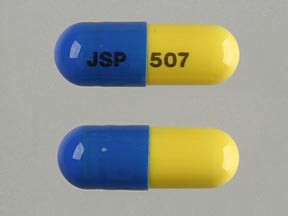
Butalbital-asa-caff-codeine Coupons & Savings Card – Discount Prices from $44.87
Generic for: Ascomp-codeine
My prescription
Edit
50-325-40-30MG, Butalbital-asa-caff-codeine (60 Capsules)
Select pharmacy

CVS
$44.87
COUPON PRICE
Walgreens
$46.92
COUPON PRICE
Albertsons
$76.18
COUPON PRICEButalbital-asa-caff-codeine savings card
Show this card to your pharmacist
CVS
$44.87
BIN
ID
PCN
GRP
019876
LHE345C42C
CHIPPO
LHX
Powered by
More prescriptions for tension headache
More prescriptions for tension headache
Price history for Ascomp-codeine (brand) & Butalbital-asa-caff-codeine (generic)
60 Capsules, 50-325-40-30MG
Average retail price for Ascomp-codeine
Average retail price for Butalbital-asa-caff-codeine
Average SaveHealth price for Butalbital-asa-caff-codeine
Our price history data is based on aggregated prescription data collected from participating pharmacies in America. Our prescription data updates daily to reflect the latest price changes. If you notice a missing data point, it means there wasn't sufficient data available to generate a monetary value for that date.
We analyzed Butalbital-asa-caff-codeine prices for (50-325-40-30MG, 60 Capsules) over the last 12 months. The average retail price was $173.67, while the average price using the SaveHealth discount card was $65.35. That's a savings of approximately 62.37% when using our Butalbital-asa-caff-codeine coupon.
Compared to the generic version, Ascomp-codeine had an average price of $172.55 over the same time period. With the SaveHealth savings card, Butalbital-asa-caff-codeine is 62.13% cheaper on average than Ascomp-codeine.
*Retail prices are based on pharmacy claims data, and may not be accurate when we don't have enough claims.
Butalbital-asa-caff-codeine dosage forms
Dosage Quantity Price from Per unit 50-325-40-30MG 60 Capsules $44.87 $0.75 50-325-40-30MG 30 Capsules $31.58 $1.05 50-325-40-30MG 100 Capsules $62.58 $0.63 50-325-40-30MG 500 Capsules $247.70 $0.49
| Dosage | Quantity | Price from | Per unit |
|---|---|---|---|
| 50-325-40-30MG | 60 Capsules | $44.87 | $0.75 |
| 50-325-40-30MG | 30 Capsules | $31.58 | $1.05 |
| 50-325-40-30MG | 100 Capsules | $62.58 | $0.63 |
| 50-325-40-30MG | 500 Capsules | $247.70 | $0.49 |
Butalbital-asa-caff-codeine Warnings
Codeine is associated with significant risks, including the potential for abuse and addiction, which could result in overdose and death. It may also lead to severe and potentially fatal breathing issues. To minimize these risks, it is important to take the smallest effective dose for the shortest duration as prescribed by your doctor.
Opioid Overdose Preparedness: Consider keeping naloxone on hand to counteract potential opioid overdose, and educate your family or household members about recognizing and responding to opioid overdose symptoms.
Breathing Risks: The likelihood of severe breathing problems is heightened at the start of treatment, after dosage increases, or if an incorrect dose is taken. Combining codeine with alcohol or other sedatives can lead to serious, possibly fatal side effects.
Drug Interactions: Other medications may interfere with codeine's elimination from your body, impacting its effectiveness. Ensure you understand how to properly use this medication and know which drugs to avoid.
Emergency Symptoms: Seek immediate medical attention if you experience slow or shallow breathing, significant lightheadedness, severe drowsiness, dizziness, or difficulty waking up.
Storage and Safety: Store codeine securely to prevent theft, misuse, or abuse. If someone accidentally ingests this medication, seek medical assistance immediately.
Pediatric Use: Codeine is not recommended for children under 18, as they may be more susceptible to serious, and sometimes fatal, breathing issues, especially if they are obese, have respiratory problems, or have recently undergone certain surgeries like tonsil or adenoid removal.
Discuss with your healthcare provider to thoroughly understand the risks and benefits of using codeine.
Butalbital-asa-caff-codeine Side Effects
Common side effects:
- nausea
- vomiting
- stomach upset
- gas
- shaking
- constipation
- dry mouth
- lightheadedness
- dizziness
- drowsiness
- trouble sleeping
Less common but important to monitor:
- interrupted breathing during sleep
- mood changes
- rapid or irregular heartbeat
- increased thirst or urination
- hearing changes
- easy bruising or bleeding
- heartburn
- difficulty swallowing
- dark urine
- yellowing of the eyes or skin
- signs of kidney or adrenal gland issues (changes in urination or unusual tiredness)
Serious side effects:
- fainting
- seizures
- black stools
- severe stomach pain
- coffee ground-like vomit
- trouble speaking
- weakness on one side of the body
- severe drowsiness
- confusion
- slow/shallow breathing
- severe allergic reaction (fever, swollen lymph nodes, rash, itching, swelling, severe dizziness, or trouble breathing)
Butalbital-asa-caff-codeine Interactions
Interactions with high risk of serious adverse effects and should be avoided:
- Clopidogrel
- Warfarin
- hydrocodone
- alcohol
- marijuana (cannabis)
- Zolpidem
- Cyclobenzaprine
- Ketoconazole
- Fluoxetine
- Carbamazepine
Interactions with moderate risk that may require dose adjustment, closer monitoring, or timing changes:
- Acetazolamide
- antacids
- penicillin
- Sulfamethoxazole
- Probenecid
- Darunavir
- dichlorphenamide
- Lithium
- 6-mercaptopurine
- Methotrexate
- methoxyflurane
- Mifepristone
- Naltrexone
- morphine
- Nalbuphine
- doxycycline
- estrogen
- metoprolol
